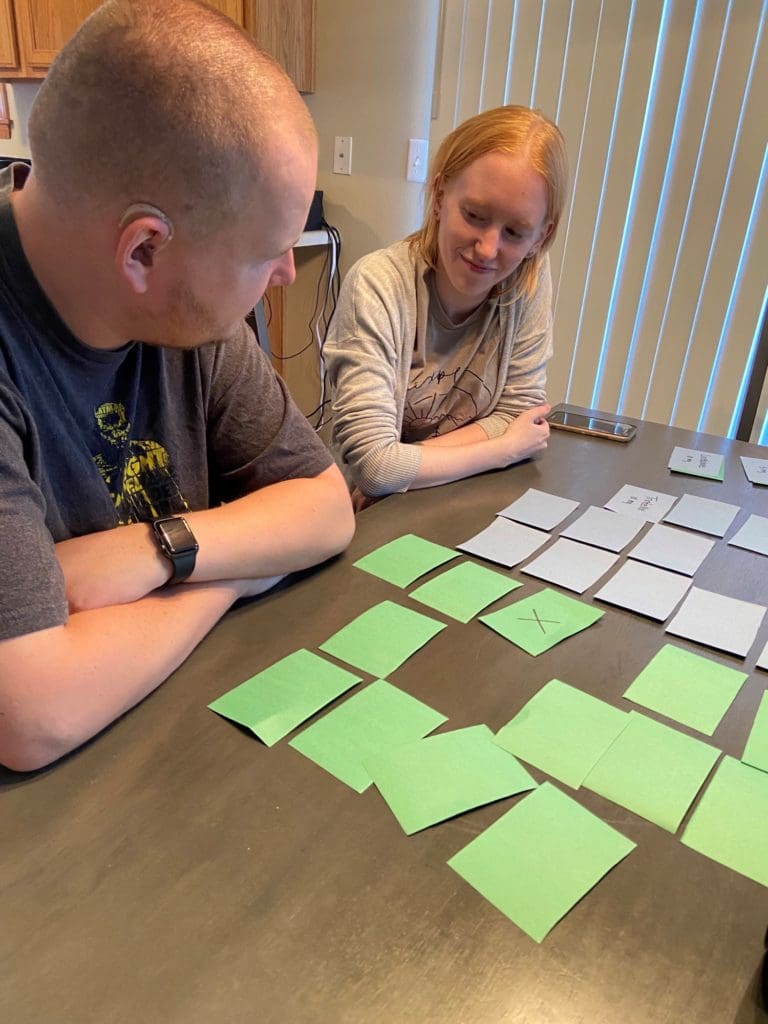The Role of Direct Support Professionals at The Arc
Reading Time: 4 Minutes
Jump to Section:
- What Are the Responsibilities of a DSP?
- How Is DSP Work Different from a Caregiver?
- What Training & Skills Does a DSP Need?
Being a DSP = A Career with Heart
“Direct Support Professional (DSP’s) are the heart of The Arc of the Ozarks.”
That’s how Outreach and Public Affairs Specialist Karen Burnell Ruff describes the role of direct support professionals in empowering people with intellectual and developmental disabilities to direct their own lives as valued members of the community.
Because DSPs are essential to fulfilling our mission, The Arc provides the training and resources they need to be successful.
Becoming a DSP is more than just another job. It’s a rewarding career that builds lasting relationships and offers numerous opportunities for advancement. In fact, many of our managers at The Arc began their journey with us as direct support professionals.
We encourage anyone interested in becoming a DSP to apply for one of our current job openings. So what is the job description of DSP’s? Let’s look at what you can expect when you join our team as a DSP at The Arc!
A Relationship-Centered Career

Ibby Fryman, who has worked at The Arc for six years, says her favorite thing about working in direct care is the relationships built with clients. Fryman currently serves as a Behavioral Tech Supervisor, after initially working as a DSP.
“DSPs are there for every birthday, every sports game, every class, every good and bad day,” she says.
Supportive DSP relationships come out of helping someone with a disability become as independent as possible without doing things for them, Ruff explains. Clients and DSPs develop a sense of trust as they navigate challenges and celebrate important milestones.
What Are the Responsibilities of a DSP?
There are no typical days in the life of a DSP, Ruff says.
That’s because all activities follow the goals set by each client. This may include, but not be limited to, assisting with medication management, nutritional meal planning, cooking, housekeeping and hygiene.
Every day is unique, and DSP job duties are individualized to the person receiving supports. Additional roles include skills coaching, behavioral supports and crisis intervention and prevention.
Practical Skills of a Direct Support Professional
The DSP’s role “can look like anything from teaching a client how to cook their favorite meal to connecting them with groups related to their interests,” Fryman says.
Activities may include helping clients read and understand the purpose of their medications. DSPs also assist clients with setting budgets and managing money. All activities are designed to enable someone with a disability to successfully participate in activities of daily living, both at home and in their community.
Helping with Social, Emotional, and Communication Skills
There is also a focus on promoting socially and emotionally healthy activities and life skills. Behavioral supports help clients achieve community-based goals including occupational or volunteer activities.
The DSP will model strategies for regulating emotions and impulses without harmful behaviors. This helps individuals find communication tools to express their needs more effectively.
The biggest challenge is working with someone with behavioral issues that are stressed, overwhelmed, and escalated, according to Sarah Olson, Residential Program Supervisor, and former DSP.
“Thankfully, The Arc provides DSPs with the training, tools, resources, and techniques that are effective methods and best practices to de-escalate those situations,” she says.
How Is DSP Work Different from a Caregiver?
It’s also important to note that providing support for individuals with disabilities is different from caregiving.
While a caregiver will do things for someone, the duties of a direct support professional includes educating, empowering, and teaching individuals to do things on their own to the highest level possible.
Although DSPs and caregivers are both responsible for clients’ wellbeing and help with daily tasks, “our role is to promote independence and teach clients how to manage their own life in any way they’re able,” says Fryman.
DSP’s are Individual-Focused
Support provided by the DSP is specific to each person, based on what is necessary for them to achieve their highest level of health, well-being, and quality of life.
For clients with significant medical needs and those who are unable to perform many activities of daily living on their own, DSPs provide the highest level of care they require to remain safe and healthy at home and in the community.
What Training & Skills Does a DSP Need?
“I think the most important qualifications for a DSP are the ability to see our individuals served as individuals instead of their behaviors or diagnoses, and the willingness to work every day towards their goals and independence,” Fryman observes.
The DSP position exists not only to help cook and clean, but to consistently teach, support, advocate for and learn from clients.
For those interested in becoming a DSP, Olson says they need to have a desire to help the people they support. It’s essential to be compassionate, understanding and patient. The ability to think outside the box is another must.
Consider Joining The Arc as a DSP!
“The Arc is a great place to work because they make sure you have all the training you need and work with you to succeed,” she notes. “They offer opportunities for growth and advancement within for those that want to.”
For Olson, the most rewarding thing about being a DSP is “being able to see the accomplishments of the individuals you support from when you first started working with them over time and knowing that what you do makes a difference.”
Are you interested in joining The Arc of the Ozarks as a direct support professional? If so, we’d love to hear from you! We invite you to apply online at any time or call us at 417-864-7887 if you have questions.
caleb@campaignium.com